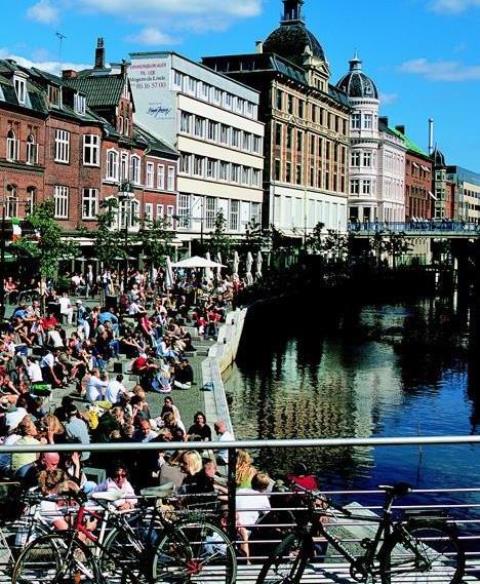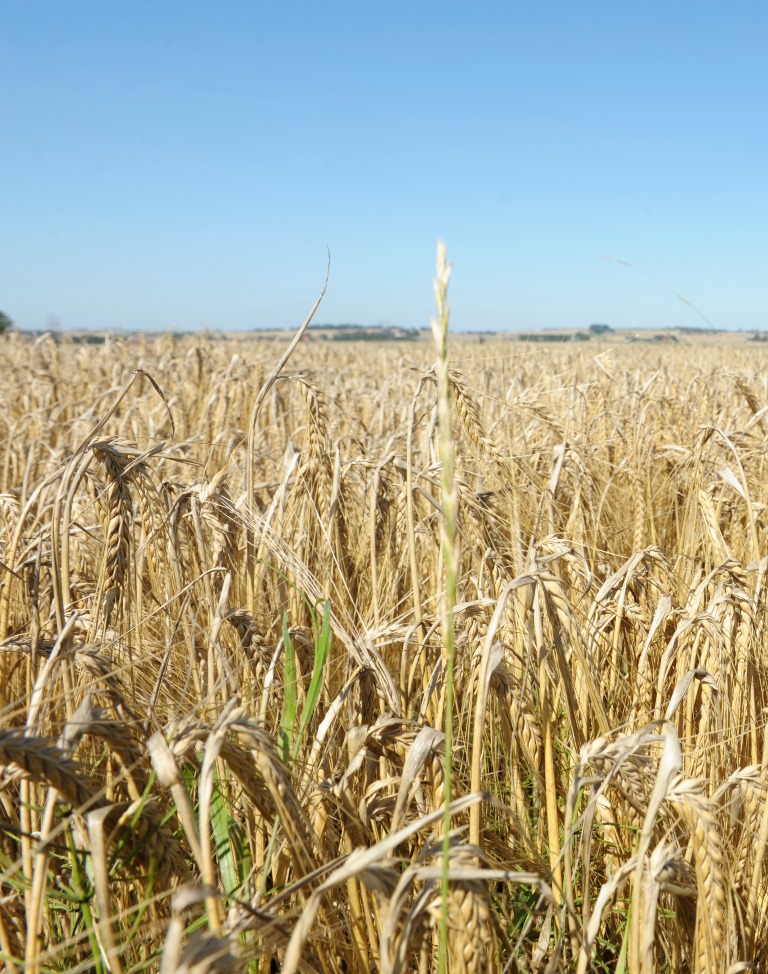Region Midtjylland (Central Denmark Region) is home to 1.2 million people (approximately 22% of the national population) in 19 municipalities in the central part of the Jutland peninsula. With the aim of supporting education, innovation and entrepreneurship, Region Midtjylland also houses giants such as Vestas and Siemens, as well as many SMEs. Some 68,000 private enterprises operate in the region, employing over 450,000 full-time employees and with a total annual turnover of DKK 670b (€90b) The region is currently developing as a bioeconomy with an industrial focus on, for example, renewable energy and foodstuffs – and especially biomass.


Germinating focus on biomass
Covering a considerable area of Denmark, Region Midtjylland includes the nation’s second city, Aarhus, with its large university, two international airports, Denmark’s largest container port, and digital and physical infrastructure of a high standard. Region Midtjylland is also Denmark’s largest agricultural area. For over 10 years, the region has been developing the entire biomass value chain, from the production of biomass to the industry for processing and refining. Inspiring examples from the area are the project BIOM that aims to increase the production of bioenergy without compromising the production of food; the Algae Center Denmark produces biogas from farmed algae (see Case 26); and the national innovation network for biomass, INBIOM, established by the region. Given these many focused efforts for more sustainable products and production, the EU’s Bioeconomy Observatory has appointed the region a “Bioeconomy Frontrunner”.
Spotlight on: Biocluster.dk
The region’s transition into a bioeconomy depends on, for example, innovation and new business opportunities. To offer inspiration, access to knowledge, and a forum for networking, and to communicate the region’s international centre of excellence in bioeconomy, the cluster initiative Biocluster.dk was formed. The cluster includes Region Midtjylland, Aarhus University, the Danish Agriculture and Food Council, Viborg municipality, the Viborg Region Business Council, and the Agro Business Park. Biocluster.dk has five employees and started as a two-year pilot project in 2013–2015. Functioning as a type of geographically concentrated business network, Biocluster.dk includes actors in the entire biomass value chain, but has a special focus on how its organisations can “optimise, develop and sell bio-based high value products within six markets”, namely, pharmaceuticals, biochemicals and bio-based materials, food, energy, feed, and fertiliser. The cluster facilitates co-operation between its members and invites new actors; it runs pilot facilities for the extraction of plant protein and hosts the world’s largest biogas test plant; and it aims to reduce the risks and costs for actors wanting to try more sustainable business models in the bioeconomy.
Focusing regional development on circularity
Covering such a large area with over a million people and tens of thousands of businesses, Region Midtjylland has a vast potential to steer a large portion of Danish industry and the economy towards sustainability. For example, two-thirds of Danish industrial exports in the energy and environment sectors emanate from the region. Much of the strategy making for regional development is carried out by the Growth Forum, which is a partnership between businesses, the region, municipalities, education and research institutions, unions and employer organisations. In the Growth Forum’s Business Development Strategy for 2010–2020, although there is room for more emphasis in their ambitious growth targets on sustainability in general, Region Midtjylland appears to be channelling its sustainability efforts by strongly promoting circular business models and the bioeconomy. Region Midtjylland has initiated, and in many cases already completed, a number of projects based on more sustainable business models. One successful example is “Rethink Business”, a three-year regional project advising SMEs and municipalities on how to operate with a more circular framework.
Regional dimension
Apart from supporting the region’s sustainable development of especially the energy, environment and food sectors, and thereby securing jobs and natural resources for future generations and taking responsibility for the region’s additions to climate change and unsustainable resource use, Region Midtjylland is also investing in various social sectors. Although education and skills training are a high priority, the region also acknowledges the need to broaden its diversity by attracting and retaining professionals from outside the country. This is necessary and beneficial to the region’s long-term development and for Denmark as a nation; it is especially important in a country with a relatively strong far-right, anti-immigration, political movement. It is not only in ecological systems that biodiversity strengthens resilience and long-term survival, but also in human society.
Learn more…